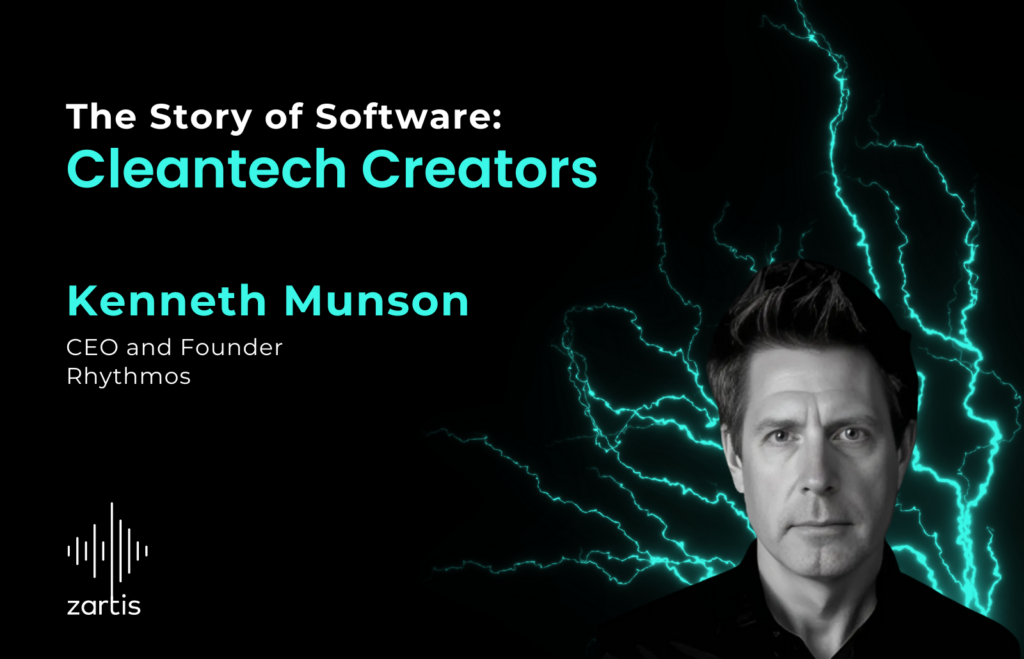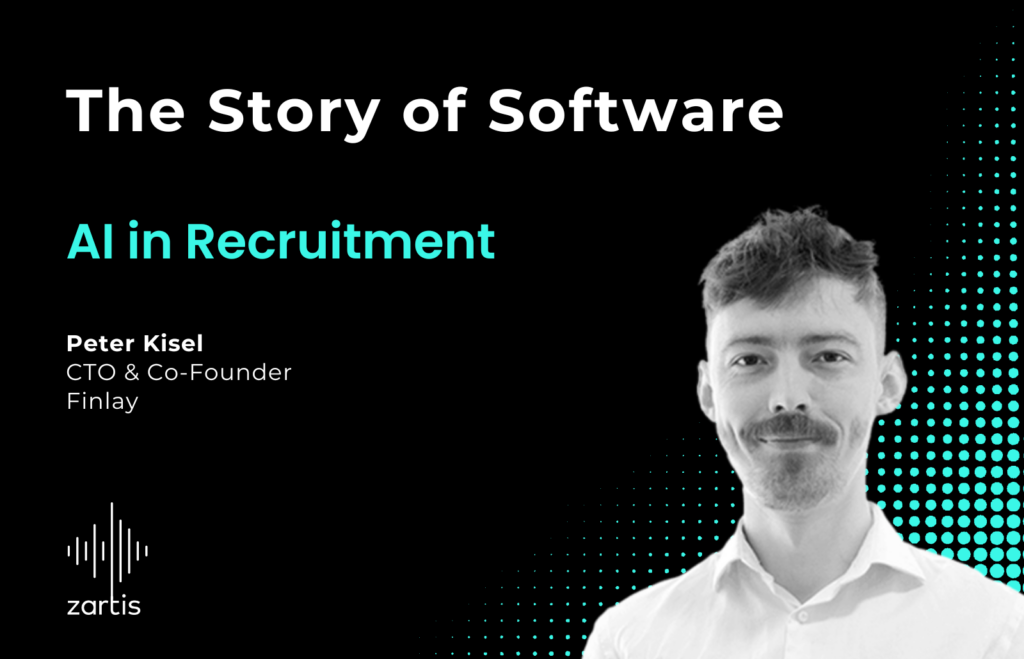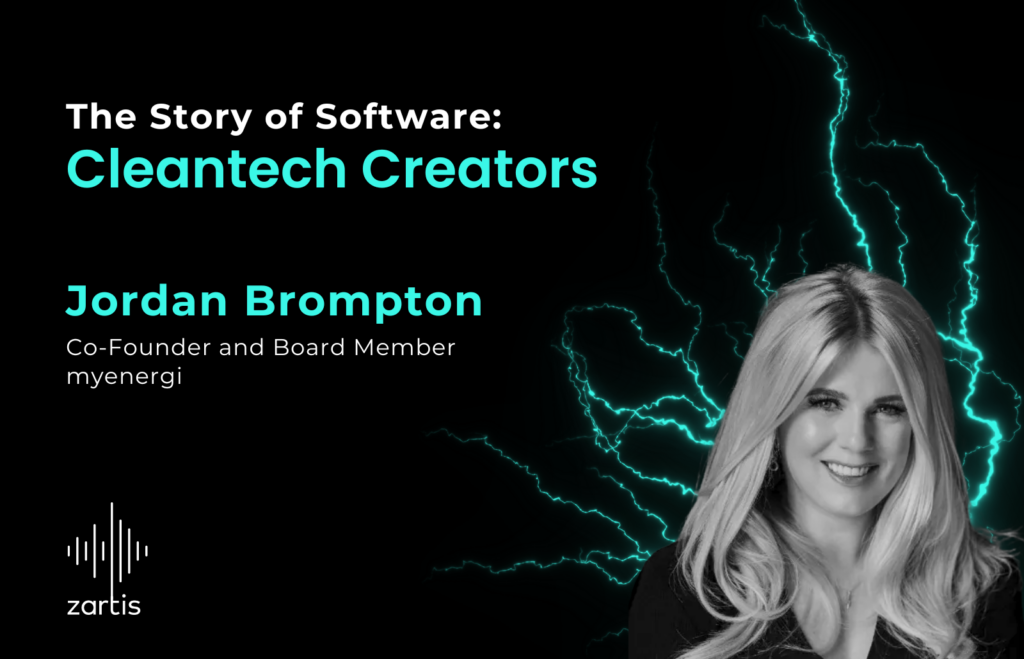Nina Mannheimer, Co-founder of Klim, joins us to share her experience of setting up and scaling a company that caters to a growing sustainability initiative – regenerative agriculture.
The Guest – Nina Mannheimer, Co-founder at Klim
Nina Mannheimer is the Co-founder and Chief Product Officer at Klim, a company enabling farmers to transition to regenerative agriculture at scale by assisting them via a digital companion. Klim is creating a movement with brands, consumers, and farmers to transform the current industrial farming system into a more sustainable one.
Building Sustainable Businesses
Building a business that offers tangible and sustainable solutions to tackle the climate crisis is tricky. From investment models that do not consider how sustainable businesses work, to the technological challenges of transforming nature into a digital product; there is a lot for startups to figure out. So, how should one go about building a successful business in the sustainability space that can stand the test of time?
Some of the topics covered in this episode include:
- Regenerative agriculture and its advantages
- Developing a business model focused on sustainability
- The business challenges of attracting investment in the field of sustainability
- The technological challenges involved in sustainability initiatives
- Hiring and managing teams for the right cause
Highlight
Transcript (abridged version)
[…]
Having been through some startups prior to Klim, are there any lessons that you picked up along the route that you channeled into this new startup?
Definitely, I think there are lots of small things, but I’m very happy about the fact that there’s more and more literature about this. I think being really mindful of biases that you have when you start a startup is very important. So, things like confirmation bias are huge. When you really want to do something, you will listen to anyone and anything that confirms that, and you will ignore any alarm bells. I think I’m a very optimistic person, so naturally, I have a bit of that. I’m like, “oh, it’s going to be fine” and I think to a certain extent, you need to be a little crazy to start a business, and you need to ignore the alarm bells. Because, ultimately, that’s what building a startup is about, but I think that’s super, super important in your research and when trying to come up with the right product or the right sort of first iteration. So, on the one hand, having previous experience in startups is insanely helpful, and on the other hand, you kind of need to approach it in a slightly naive and new way because otherwise, there will be so many points for you to stop.
What would you see as the main business challenges in this space?
I think the one big challenge that we have, that I think a lot about in terms of product, is simply translating nature into a digital product. So, initially, when we started working on this, I kept thinking, this is so cool and so interesting, I don’t understand why no one else isn’t doing it. Then as we got further along, I understood how incredibly complex it is to take something as complicated as agriculture and try to fit it into a digital product that follows specific rules. So that’s the one really interesting challenge which really keeps me on my feet, and I actually love solving it.
The other thing that I think is really interesting and very challenging is that we’re essentially selling something that hasn’t existed before. So usually when you start a brand like a shoe brand, you are looking at other people selling shoes. In our case, especially the work that we do on the supply chain side where we are working with brands to transform their supply chains to make them more sustainable – that’s something that wasn’t really done before. Companies were doing that in-house, or not doing it at all. It’s been really interesting to come up with the right strategy, and the right way of communicating that, and just the right access points to sell something to companies that they haven’t really been thinking about. I think it’s very exciting and we’re learning everyday because you simply can’t copy what others have done.
I have some questions for you about how you deal with investors, because I imagine you and your co-founders were required to have a productive relationship with your investors. How do you make sure you’re getting involved with the right people?
[…] I’ve really seen many kinds of investors, ranging from very focused climate investors all the way to main venture investors, because beyond being an impact startup, we are a startup that makes money, and is financially successful, so we are trying to venture out of the impact space as well. What I have found is that it makes sense to speak to those investors who really believe in your story, and not just see the potential of the startup in general. Because, what we’ve seen is that a lot of investors are now trying to get into the sustainability space. And the thing is, most of them want to get into sustainability, but they’re not willing to change the terms that they’re investing on. So, one big example of that is that I think there are lots of impact startups with such high potential, but they might take a bit longer than 5 or 10 years to be successful because they’re in a new market where it might just take a little longer to get to a stage where maybe a less sustainable startup could be within five or 10 years.
I think it’s really important for investors to start seeing that, and to incorporate that into their investment strategy, and not just try to do everything the same way as they did before, plus, it has to be sustainable. So that’s something that we really care about and something that I actually actively ask investors about when we speak to them the first time – what their strategy is around impact investing and how they see it. […]
So, I think it’s really important to be realistic from the investor side, and then also on our side to be aware of that slight tension between what it means to invest in a sustainable business and the realities of what building a sustainable business is. I think that’s really important.
[…]
—
You can find The Story of Software podcast on:
Apple Podcasts, Spotify, Stitcher, Deezer, & any other podcast platform of your choice.
The Story of Software Podcast is produced by Zartis. We hope you enjoy listening to this tech podcast and feel free to share any feedback with us: podcast@zartis.com







